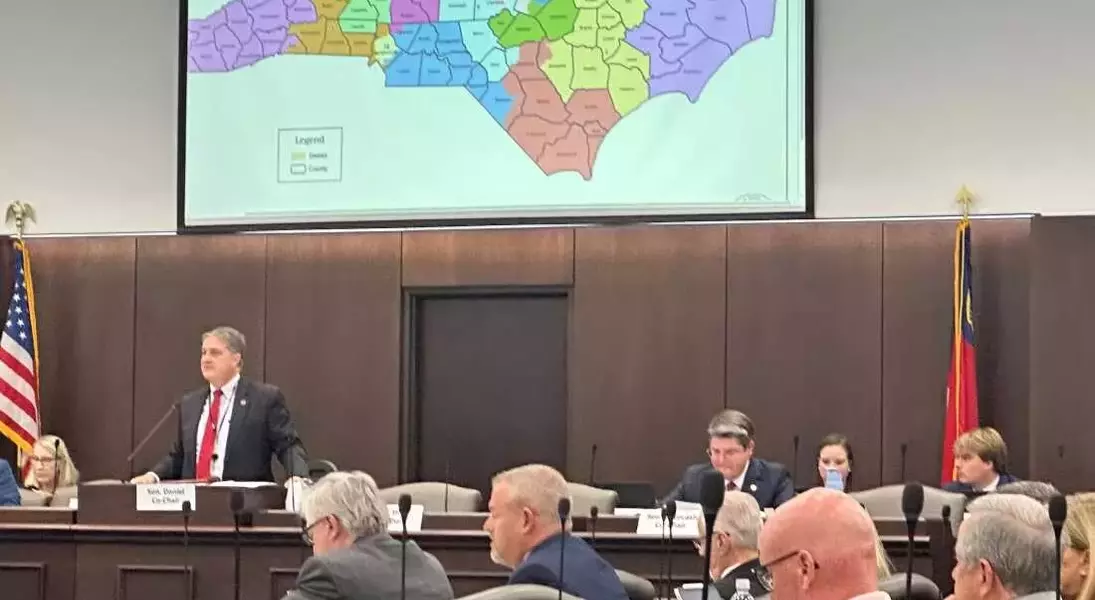



North Carolina has become a focal point in the national redistricting debate, with Republican legislators introducing new congressional district boundaries. This action is part of a broader push by the GOP, reportedly at the behest of former President Trump, to solidify their hold on the U.S. House of Representatives in the upcoming midterm elections.
The proposed map targets North Carolina's 1st Congressional District, currently a swing district predominantly represented by Black Democrats. The plan involves shifting several coastal counties and precincts into the 1st District, making it more conservative, while moving some agriculture-focused counties into the 3rd District. Opponents, primarily Democratic lawmakers, contend that these changes are a deliberate attempt to undermine the voting influence of Black residents in eastern North Carolina. They argue that the new map reduces the percentage of Black voters in the 1st District from approximately 40% to 32%, with only a marginal increase in the 3rd District. Republicans, however, assert that their aim is purely partisan, seeking to secure additional seats for their party, a rationale that some experts believe is intended to preempt legal challenges based on racial gerrymandering.
Redistricting has become a persistent issue in North Carolina, with the state experiencing more new congressional maps than federal elections in recent years. This latest effort follows a 2023 ruling by the North Carolina Supreme Court, which overturned a previous decision deeming a map unconstitutional due to partisan gerrymandering. This paved the way for the General Assembly to replace a map that resulted in an equal split of Republican and Democratic congressional seats with one that could lead to a Republican majority. This move in North Carolina is part of a wider national trend, with states like Texas and Missouri also redrawing maps to favor the GOP, while California has introduced a referendum to counter these efforts.
The contentious process of redistricting underscores the dynamic nature of democratic representation. While political parties naturally strive to gain an advantage, it is crucial to ensure that such efforts do not disenfranchise any segment of the population or erode the fairness and integrity of the electoral system. Upholding principles of equitable representation and transparent governance is paramount for a healthy and vibrant democracy.
